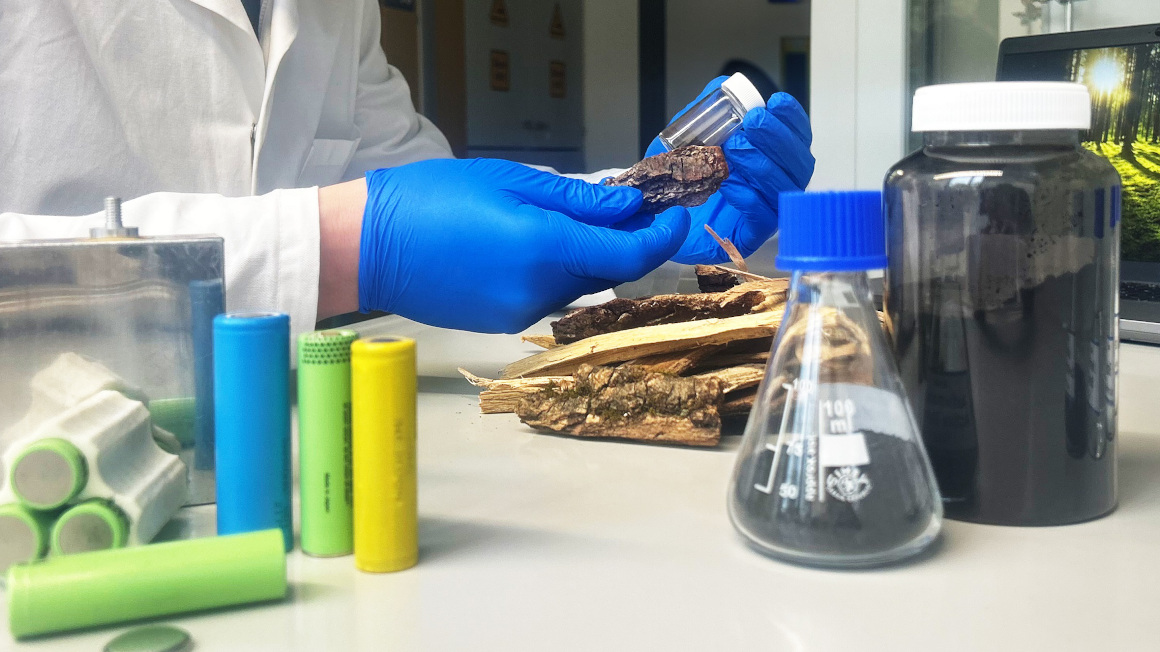Batteries made from wood waste
For the development of resource-saving sodium-ion batteries based on lignin and hemicellulose, researchers at Aalen University are receiving around one million euros from the Carl Zeiss Foundation.

They are small, light and long-lasting and therefore extremely popular: lithium-ion batteries. These powerful energy sources are not only found in many electronic devices such as cell phones, laptops and digital cameras. The automotive industry also mostly relies on lithium-ion batteries for the production of electric cars. The problem is that lithium is only available in limited quantities and has to be imported. Mining the raw material is also often problematic for both people and the environment. Researchers at Aalen University now want to develop a sustainable and cost-effective alternative to the coveted lithium-ion batteries.
Using pyrolysis to create sustainable sodium-ion batteries
They are relying on sodium-ion batteries. These primarily contain hard carbons, which, according to the researchers, can be obtained in a resource-saving manner through the pyrolysis of plant materials such as wood waste. In this process, the chemical compounds are broken down at high temperatures and largely in the absence of oxygen. However, as the composition of wood waste varies greatly, the properties of the compounds obtained through thermochemical conversion have also fluctuated greatly to date. The Aachen researchers now want to solve this problem.
Development of a new type of wood pulping process
In the HANa project, a new type of wood pulping process is to be developed in the coming years that will make it possible to extract the components lignin and hemicellulose with defined properties from wood waste. According to the researchers, these wood components are pyrolyzed into hard carbons that are of high quality with only minor fluctuations. In the project, which will run from 2024, the team led by project manager Volker Knoblauch also wants to map the entire process chain – from wood pulping, pyrolysis and electrode development through to installation and testing in battery cells.
Funding from the Carl Zeiss Foundation
The project team's work is being funded by the Carl Zeiss Foundation with one million euros. "It would be a huge step towards sustainable battery storage, and we are delighted to have been awarded the contract by the Carl Zeiss Foundation," says Knoblauch.bb


